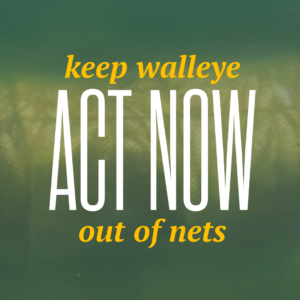HB 5108 introduced, puts Michigan’s fishing heritage at risk
MICHIGAN’S SPORTFISHING HERITAGE IS AT RISK
New legislation dropped today in the Michigan House would put Michigan’s $2.3 billion dollar annual recreational angling industry and our fishing heritage at risk.
HB 5108 , sponsored by Rep. Jason Morgan (D-Ann Arbor), would allow for the state-licensed commercial take of game fish, including lake trout, smallmouth, pa nfish, walleye, perch and other game fish .
These sport fish are planted, reared and/or managed by using recreational angler monies through fishing license sales and the Dingell-Johnson Sportfishing Act, which levies an excise tax on fishing equipment and is apportioned back to states for fisheries work.
This legislation would have an immeasurable impact on our recreational fishery and outdoor heritage, as well as the 171,000+ jobs it supports.
For MUCC and its members this issue is as serious as it gets, said policy assistant Justin Tomei.
“Short of an outright ban on fishing this piece of legislation is as bad as it gets. This is a five alarm fire,” said Tomei. “Supporters of the bill are peddling the narrative that we need to protect our commercial fishing heritage. But in Michigan the recreational fishery has an impact on the economy and our heritage several orders of magnitude larger.”
Similar legislation was attempted once before, and conservationists like yourself helped stop the legislation before it got any real traction and instead moved a commercial fishing p ackage that protected game species.
Clicking the link above will send you to MUCC’s call to action page, where you can send a letter to your state senator, as well as the author of the bill, telling them not to allow the commercial take of Michigan’s prized gamefish.
Send your representative a message, take a stand for our fishing heritage.
The post HB 5108 introduced, puts Michigan’s fishing heritage at risk appeared first on Michigan United Conservation Clubs.
Recent Posts




